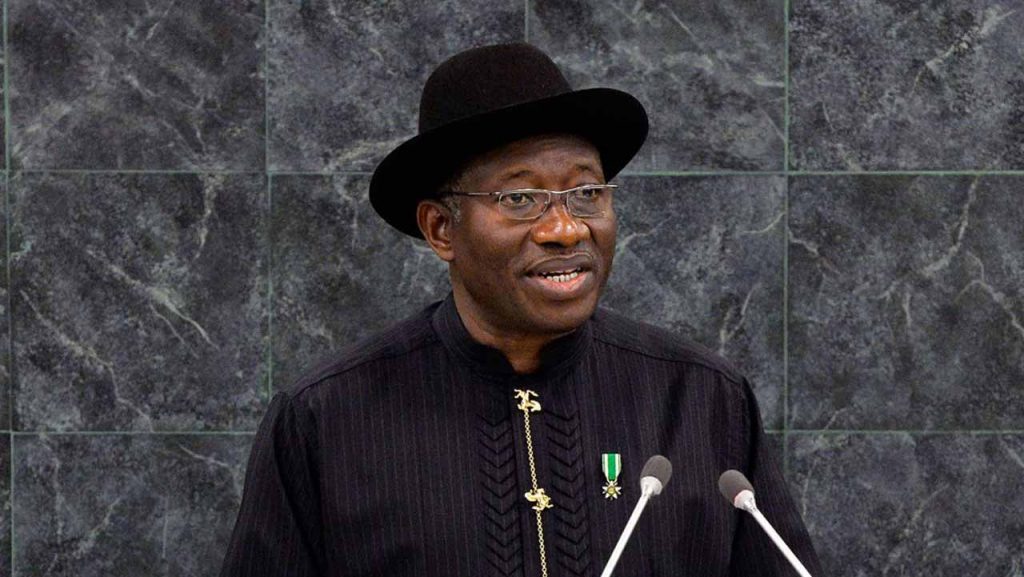Former Southeast spokesman of President Bola Tinubu, Denge Josef Onoh, has stated that former President Goodluck Jonathan is legally qualified to contest the 2027 presidential election, countering remarks by President Tinubu’s Special Adviser on Information and Strategy, Bayo Onanuga.
Onanuga had on Monday suggested that Jonathan’s eligibility might be subject to court determination.
Onoh, however, said that the matter has already been conclusively resolved and cannot be revisited except through an unprecedented legal challenge.
Addressing journalists in Yenegoa, Bayelsa State, on Tuesday, Onoh presented a certified true copy of the relevant judgment.
“The eligibility of former President Jonathan under constitutional term limits is already a settled legal precedent,” Onoh said. “It was established through unchallenged judicial rulings that affirmed his qualification to contest future elections.”
Onoh cited a May 2022 Federal High Court judgment in Yenegoa (Suit No. FHC/YNG/CS/86/2022), in which Justice Isa H. Dashen ruled on a case brought by APC members, Andy Solomon and Ibidiye Abraham, against Jonathan, the APC, and INEC. The court held that Jonathan’s assumption of office on May 6, 2010, following the death of President Umaru Musa Yar’Adua, was a succession to complete Yar’Adua’s unexpired term under the doctrine of necessity and did not count toward the two-term limit for elected mandates. Onoh explained that Jonathan was elected only once, in 2011, served a full term until 2015, and therefore remains eligible for future contests.
“The 2018 constitutional amendment, which added Section 137(3) to bar anyone sworn in twice from further contests, does not apply retroactively to Jonathan,” Onoh said.
“The amendment postdated his tenures and cannot retroactively disqualify rights accrued under the pre-amendment framework.” He added that ex-post facto laws are impermissible under Nigeria’s constitutional democracy, citing the 2015 Court of Appeal ruling in Cyriacus Njoku v. Goodluck Ebele Jonathan.
Onoh stressed that the 2022 judgment was never appealed and now stands as final and binding under the doctrine of res judicata, barring any relitigation of the same issues. “Any suggestion that the courts might revisit this is legally unfounded,” he said. “Nigerian jurisprudence, including Supreme Court decisions such as Marwa v. Nyako (2012), upholds such finality to ensure certainty and prevent endless challenges to settled rights.”
He also referred to an earlier Federal High Court ruling in 2013 (Suit No. FHC/ABJ/CS/231/2013, Justice Mudashiru Oniyangi) that cleared Jonathan to run in 2015, noting that this unappealed decision formed the foundation for the 2022 ruling.
“This chain of unassailed judgments creates an impregnable legal shield,” Onoh said.
Onoh advised President Tinubu to focus on policy priorities and voter engagement, rather than political speculation over Jonathan’s eligibility. “To honor the rule of law if Jonathan enters the 2027 race, I advise President Tinubu to engage on visions for economic revival, security, and unity,” he said.
“Nigeria’s democracy thrives when legal finality frees space for ideas, not recycled litigation.”
He concluded by warning that political actors could mislead the president, drawing parallels with the 2015 elections.
“President Tinubu should not fall into the same trap by listening to voices that seek to manipulate him,” Onoh said.

